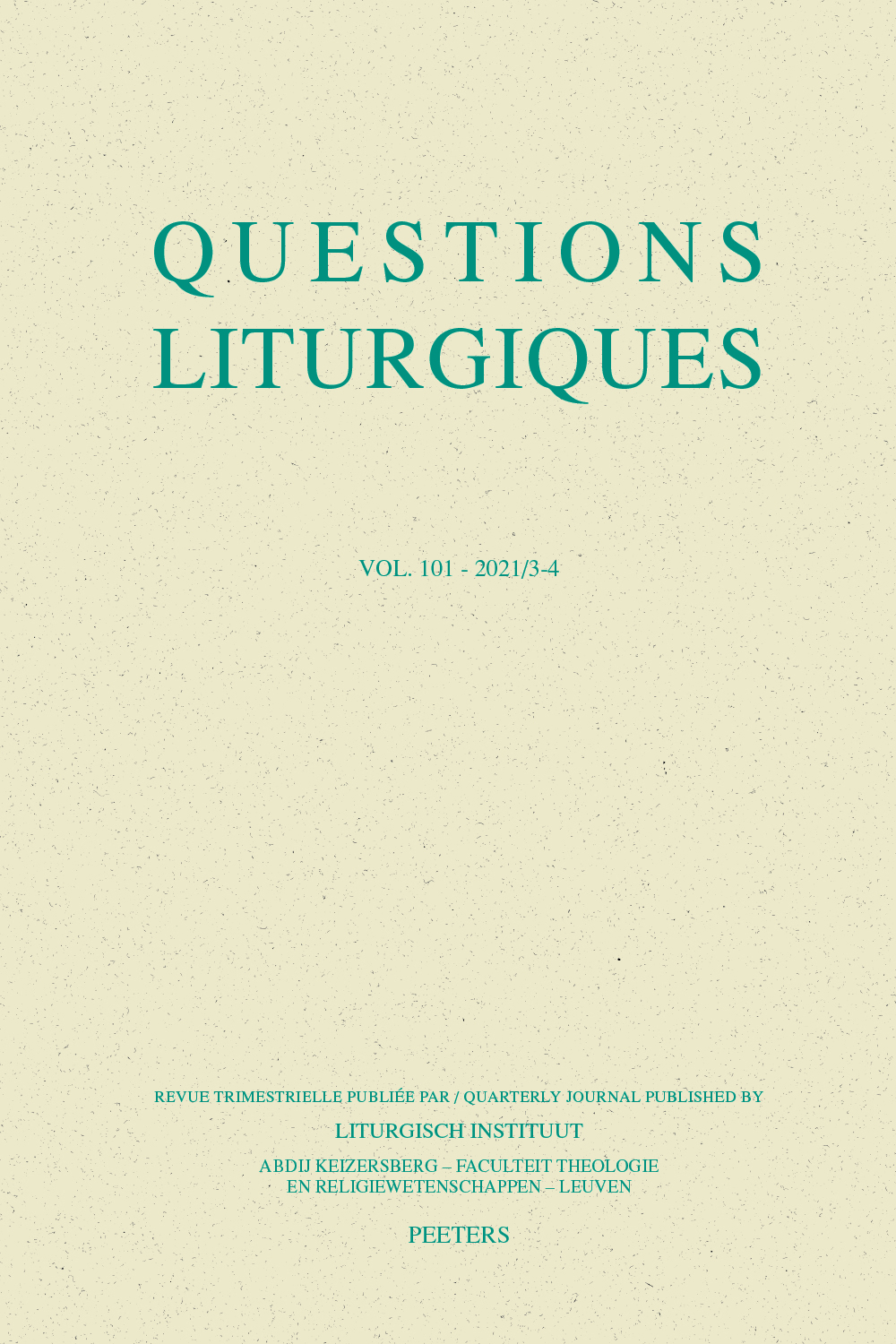 previous article in this issue previous article in this issue | next article in this issue  |

Preview first page |
Document Details : Title: Sojourners, Guests, and Strangers Subtitle: The Church as Enactment of the Hospitality of God Author(s): ROSSI, Philip J. Journal: Questions Liturgiques/Studies in Liturgy Volume: 90 Issue: 2-3 Date: 2009 Pages: 120-130 DOI: 10.2143/QL.90.2.2042627 Abstract : This essay proposes 'hospitality' as an appropriate trope for the Church’s enacted identity. The parable of the great feast (Matthew, Luke) provides an initial locus for displaying hospitality as fundamental to the divine initiative calling humans into communion with God and each other; this offers a basis for understanding the assembly called into being by God as locus for enactment of God’s hospitality. Understanding the Church this way has consequences for its mission in a late modern culture of fractured meaning in which humanity has all too often rendered itself 'homeless' in the world as a result of the thoughtless evil it has wrought: Having first disenchanted the workings of nature into indifference to human purposes, we have proved ourselves no better at clearing space for welcoming one another’s flourishing. In face of such cosmic and human inhospitality, the Church is called to enact in proclamation, prayer, and practice, a welcome manifesting the unfailing hospitality of the God whose incarnate embrace of love encompasses all that is human and all that is created. This call to unfailing hospitality has implications that deserve attention in considering the manner in which Christian communities do – or do not – extend welcome to one another in eucharistic fellowship. Cet essai témoigne de «l’hospitalité» comme un trope approprié pour une identité actualisée de l’Église. La parabole du grand festin (Matthieu, Luc) présente un lieu initial pour manifester l’hospitalité comme fondamentale dans l’initiative divine appelant les humains en une communion avec Dieu et tout un chacun; elle fournit une base pour comprendre l’assemblée ainsi appelée en Dieu comme un lieu pour la manifestation de l’hospitalité divine. Pour l’Église cette voie entraine des conséquences quant à sa mission dans une présente culture moderne d’une signification fracturée dans laquelle l’humanité s’est rendue elle-même trop souvent ‘sans domicile’ dans le monde comme si un malheur intense l’avait frappée. Après avoir relevé certains méfaits de la nature neutralisant des efforts humains, nous nous sentons nullement meilleurs dans la préparation d’un espace pour témoigner de notre bienvenue à l’égard de la prospérité de l’un ou de l’autre. En face d’une telle inhospitalité cosmique et humaine, l’Église est appelée dans sa prédication, sa prière et son apostolat à manifester avec bienveillance l’hospitalité inépuisable de Dieu dont l’étreinte d’amour incarné enveloppe tout ce qui est humain et tout ce qui est créé. Cet appel à une hospitalité inépuisable implique des applications qui méritent l’attention quant à la manière dont les communautés chrétiennes ont à témoigner ou non leur accueil à quiconque participe à l’assemblée eucharistique. |
|


